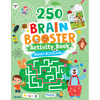Manners are more than just polite words—they are life skills that shape how children interact with the world around them. From saying ‘please’ and ‘thank you’ to respecting others and following rules, good manners help kids build strong relationships and navigate social situations with confidence. The Manners for Me series introduces children to these important values in a fun and relatable way, making the learning process enjoyable and memorable.
The Importance of Teaching Manners
Good manners are the foundation of empathy, respect, and kindness. They teach children how to communicate effectively, show consideration for others, and create a positive impact in their communities. When kids learn to say ‘hello’ or ‘sorry’, or practice sharing and following rules, they not only improve their own behaviour but also inspire others around them to do the same. These simple acts of courtesy play a significant role in developing children into considerate, self-assured, and empathetic individuals.
Click here to buy this Collection
Key Values in the Manners for Me Series
1. Say Hello
A cheerful ‘hello’ is one of the easiest ways to make someone feel seen and appreciated. Teaching kids to greet others warmly not only helps them build connections but also boosts their social confidence. A friendly greeting can set the tone for positive interactions, whether meeting a new classmate, saying hello to a neighbour, or greeting a teacher at school. This simple habit teaches children the importance of acknowledging others and fostering inclusivity.
2. Say Please
The word ‘please’ is a small yet powerful way to show respect and politeness. When kids use ‘please’ in their requests, they demonstrate consideration for others and make their interactions more pleasant. Whether they are asking for a toy, a snack, or help with homework, this polite gesture helps children learn the value of treating others with kindness and humility.
3. Say Thank You
Gratitude is a cornerstone of good manners, and ‘thank you’ is its simplest expression. By teaching children to say ‘thank you’ when someone helps them, offers a gift, or performs a kind gesture, they learn to appreciate the effort of others. This habit fosters a sense of gratitude and builds stronger relationships, showing kids the importance of acknowledging the kindness around them.
4. Say Sorry
Apologising is an essential life skill that teaches kids accountability and empathy. Learning to say ‘sorry’ helps children recognise when they’ve made a mistake and take steps to mend the situation. Whether it’s an argument with a friend or accidentally hurting someone’s feelings, saying ‘sorry’ helps repair relationships and builds a foundation of trust and mutual respect.
5. Learn to Share
Sharing teaches kids about generosity, collaboration, and the joy of giving. Whether it’s sharing toys during playtime, offering a treat to a sibling, or working on a group project, this habit helps children understand the importance of mutual happiness. Sharing also encourages teamwork and strengthens friendships, making it a vital social skill for kids to develop.
6. Respecting Others
Respect is a vital value that helps children embrace diversity, appreciate differences, and treat everyone with kindness. Teaching kids to respect others encourages them to listen, understand different perspectives, and value the feelings of those around them. This habit builds harmonious relationships and fosters an environment of acceptance and inclusivity, both at home and in the community.
7. Saying Excuse Me
‘Excuse me’ is a phrase that helps children navigate social situations with grace and consideration. Whether they need to interrupt a conversation, pass through a crowd, or excuse themselves after coughing or sneezing, this polite habit shows respect for others’ personal space and time. It’s a small gesture that makes a big difference in teaching children how to act courteously in various situations.
8. Following Rules
Rules are essential for creating structure, ensuring fairness, and maintaining safety. Teaching kids to follow rules helps them understand discipline and the value of cooperation. Whether it’s classroom rules, traffic safety guidelines, or household expectations, following rules helps children develop a sense of responsibility. It also prepares them to respect authority and contribute positively to the spaces they inhabit.
How to Reinforce Manners at Home
- Lead by Example: Children often mimic adults, so practice the manners you want them to learn.
- Create Practice Opportunities: Use daily interactions, like family meals or playtime, to encourage polite behaviour.
- Praise Efforts: Celebrate when children use good manners to reinforce positive habits.
- Use Stories and Games: Stories like those in the Manners for Me series make learning fun, and games like role-playing help kids practice in a safe environment.
Teaching manners to children is an investment that pays priceless dividends. These small but meaningful habits prepare kids to navigate life with confidence, respect, and kindness. The Manners for Me series provides an engaging way to introduce these values, making the process enjoyable for both kids and parents.
By helping children embrace manners, we’re not just shaping polite individuals—we’re nurturing kind, thoughtful, and responsible members of society. Let’s inspire our kids to make the world a better place, one ‘please’ and ‘thank you’ at a time.









